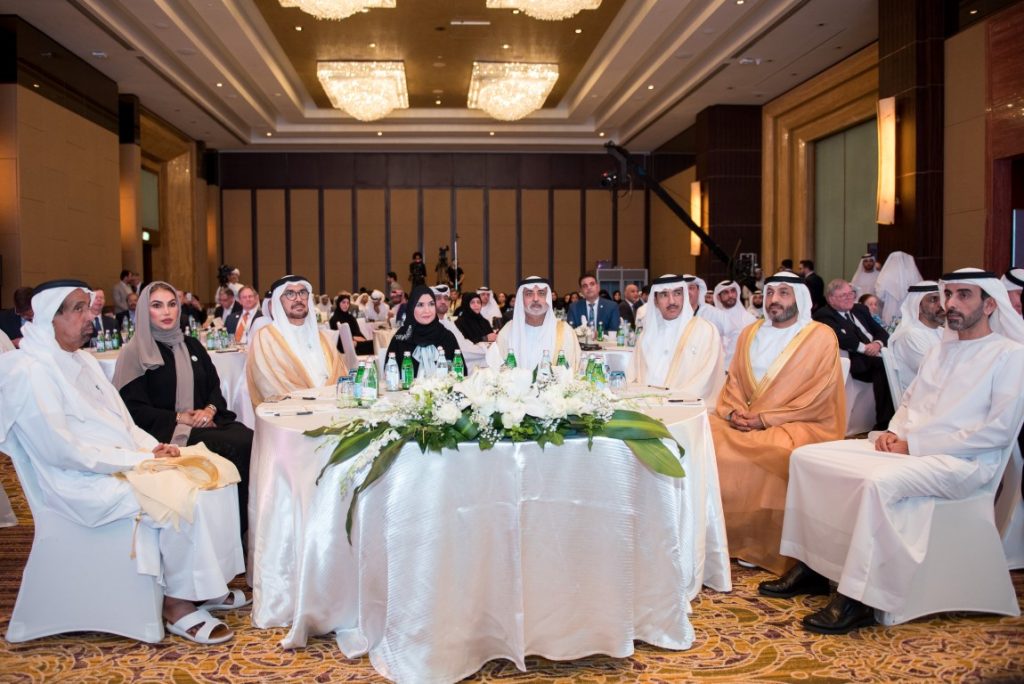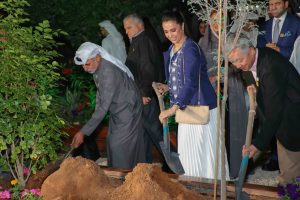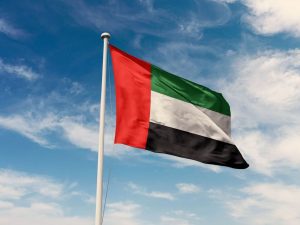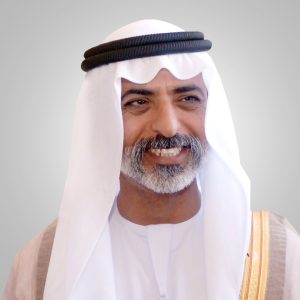ABU DHABI, 24th April, 2019 (WAM) – One of the key areas of focus during the UAE’s ‘Year of Tolerance’ is the need for legislative and policy development in the areas of religious and cultural tolerance, Sheikh Nahyan bin Mubarak Al Nahyan, the Minister of Tolerance, said here today.He was inaugurating a two-day conference on ‘Tolerance in the Context of Legislative and Judicial Systems’, organised by the Ministry in partnership with the Brigham Young University International Centre for Law and Religion Studies, and the UAE University College of Law.Noting that the UAE is one of the most ethnically and religiously diverse countries in the world, but, at the same time, one of the most peaceful, harmonious and prosperous places on earth, Sheikh Nahyan said that We know that tolerance does not flourish without hard work. As part of this, he said, there are efforts to ensure that young men and women are taught during their education about the values of tolerance and to incorporate those into their behaviour. The values of tolerance are also being promoted through all means of communication, he added, while we undertake continued societal and legislative initiatives that fight hate, promote mutual respect, and celebrate our shared human values. Key to our success, Sheikh Nahyan said, is an accurate, complete, and honest understanding of our history, traditions and beliefs and how those virtues must be adapted to the warp-speed transmission of information, and mis-information, found in the 21st Century. That understanding will guide our way forward. Dr. Amal Abdullah Al Qubaisi, Speaker of Federal National Council, FNC; Ahmed Juma Al Zaabi, Minister of the Federal Supreme Council at the Ministry of Presidential Affairs; Saeed Ahmed Ghobash, Chancellor of the UAE University; Dr Mohammed Mattar Al Kaabi, Chairman of the General Authority of Islamic Affairs and Endowments; and several senior justice officials and Professors of Law,attended the opening ceremony.The full text of the Minister’s speech follows: It is my great pleasure to welcome you to the first ever international conference that deals explicitly with Tolerance in the Context of Legislative and Judicial Systems. I offer a special welcome to our international speakers and guests who have traveled from afar to join us in the only country in the world that has created a Ministry of Tolerance. I am especially pleased to welcome Mrs. Helen Leon, A member of the Brigham Young University’s Leadership Council,and thank her for her generous support of this conference.I stand before you today, Ladies and Gentlemen, as the Minister of Tolerance in the United Arab Emirates, one of the most ethnically and religiously diverse countries in the world, but, at the same time, one of the most peaceful, harmonious and prosperous places on earth. I stand before you as the embodiment of my country’s commitment to tolerance as an essential component of society. We know that tolerance does not flourish without hard work. For example, my ministry and my country are focused on ensuring that the educational experience of our country’s young men and women results in their understanding the important values of tolerance and incorporate those values into their attitudes and behaviours. We are likewise concentrating on promoting tolerance in all forms of communication. And we undertake continued societal and legislative initiatives that fight hate, promote mutual respect, and celebrate our shared human values.Key to our success is an accurate, complete, and honest understanding of our history, traditions and beliefs and how those virtues must be adapted to the warp-speed transmission of information, and misinformation, found in the 21st Century. That understanding will guide our way forward. It will reveal our strengths and our weaknesses. It will suggest policies we need and actions we should take.Consequently, I am especially pleased that this conference is a joint initiative of the Ministry of Tolerance, in partnership with the Brigham Young University International Center for Law and Religion Studies, and the United Emirates University College of Law. The conference is timely, because as most of you will know, 2019 is the Year of Tolerance in the United Arab Emirates. The need for legislative and policy development in the areas of religious and cultural tolerance is one of the important areas of focus for the year.The United Arab Emirates has embraced tolerance since the founder of our nation, the late Sheikh Zayed Bin Sultan Al Nahyan, united our emirates in 1971. Sheikh Zayed believed absolutely that recognition and appreciation of others, and the ability to live together with, and listen to others, would provide the sound foundation for a civil, peaceful and prosperous country. With his wife, the Mother of our Nation, H.H. Sheikha Fatima bint Mubarak, he knew that women must play a role equal to men, if we were to develop fully and fairly. He knew that we must see and hear and engage people who are not part of our own culture. He knew that we must come to understand and respect the scores of different cultures, nationalities, ethnicities, religions, and beliefs that would be represented in our country.Sheikh Zayed wanted the United Arab Emirates to become a positive force in the global economy. His actions led us to that status today. Our country became a global crossroads with an amazingly diverse population of almost ten million people representing some 200 different countries with uncounted cultures, languages and religions.Our momentum towards a tolerant and a peaceful society has quickened under the leadership of His Highness the President, Sheikh Khalifa bin Zayed Al Nahyan, with the formidable support of His Highness Sheikh Mohammed bin Rashid Al Maktoum, Vice President, Prime Minister, and Ruler of Dubai and of His Highness Sheikh Mohamed bin Zayed Al Nahyan, Crown Prince of Abu Dhabi and Deputy Commander of the Armed Forces. They are leaders who recognise the potential of our (to use the words of His Highness Sheikh Khalifa) greatly diversified demography. They recognize the obligation to respect human rights for all and to provide opportunities for (and I quote again) dignified living [for] all who live on our lands. My Friends: Earlier this year, Abu Dhabi and the United Arab Emirates convened an historic event when His Holiness Pope Francis and His Eminence Dr. Ahmed El-Tayeb, Grand Imam of Al-Azhar, signed the Abu Dhabi Declaration of Human Fraternity. That declaration is a powerful expression of the moral force that we all must exert if we are to meet the great global challenges of this twenty-first century. I am delighted that your conference will consider the legislative implications of this historic document. The document provides an excellent base upon which an evaluation of legislative and judicial systems may be undertaken. Good legislation must be based on sound legal and moral principles. Good legislation draws upon the knowledge and wisdom of all the affected stakeholders. In the case of law relating to religious freedoms and the eradication of hate speech, it is important to have input from all segments of the society. I am very pleased, as I look around the room today, to see so many friends from different religions, cultures and backgrounds that make up the rich tapestry of the UAE’s residents. Their participation will surely enrich your discussions and deliberations.Ladies and Gentlemen: By attending this conference, you demonstrate your commitment to exploring ways of improving laws relating to tolerance, human fraternity and human dignity in all countries of the world. Therefore, I call on all of you to develop specific recommendations and creative approaches to promote international best legal practice in the important field of human behaviour. In particular, I ask that you consider: 1. How to build stronger regional and international links and networks that will help achieve the goal of Human Fraternity? 2. How to develop common understandings of our shared challenges and opportunities, and how to share in the benefits of working together for a common cause? What role will international agreements play in the development and administration of tolerance-sensitive legal and judicial systems? 3. How to build and strengthen the institutions that make this cooperation possible? How to share in the important contributions of the Arab-Islamic world to tolerance throughout history? 4. How to develop the research and intellectual capabilities that allow for continued progress in this area of law? How long will a law reform process take? How will any new laws be developed or drafted? 5. How to identify and develop local, national and regional leaders who are committed to advancing tolerance and Human Fraternity-related issues in their respective fields of endeavour and to moving their commitments to have a global impact? 6. In the context of this conference, your leadership is needed for the continued dialogue between us all. Leadership is required to understand that our future success together depends on our ability to innovate and create new knowledge and more humane laws.The value of your Conference lies in the attention you give to all of these important issues and in your ability to develop a common understanding of various challenges and opportunities.In closing, let me say that I have great hopes for this conference and the collaboration between the BYU International Centre for Law and Religion Studies and the UAE University College of Law. I hope sincerely that this is the first of many such conferences that unfold over the years to come. I also have great faith in the capacity of the faculty of the UAE University College of Law to help the college become a centre of excellence for the global promotion of tolerance laws. My ministry stands ready to work with the University to achieve this objective.I welcome all of you, once again, and wish for you an enjoyable and productive Conference.Thank you”}]




